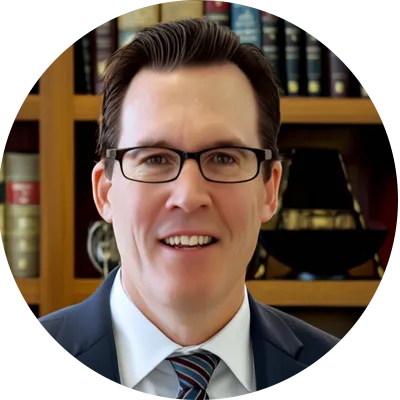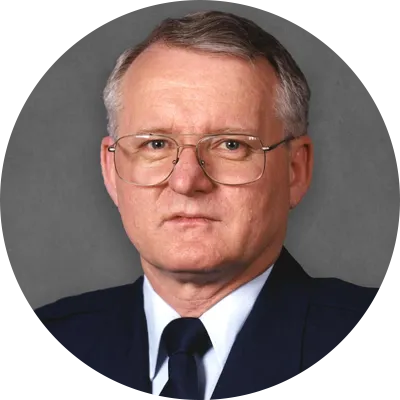

Being attentive in the workplace is the key to a safe operation! There are no shortcuts to safety– none! Many industrial accidents occur when someone is not paying attention, using a tool in an improper manner, or using a tool that it is not designed for. Using a screwdriver as a prybar is a simple example. A screwdriver is designed to drive screws, not be used as a prybar.
Wearing personal protective equipment– hard toed shoes, safety vest and belt, a hard hat and gloves are important when working in any industrial environment. It makes no difference if no one is watching or you are by yourself– if the company rules say to wear all personal protective equipment– DO IT!
Jewelry is another big mistake in any industrial environment. Wearing a watch, ring, bracelet, necklace may mean that you are in love, are married, have a significant other that you are fond of, however, when a manager has to call that individual and tell he/she that you are in the hospital because you lost a finger because of a ring, wrist got burned because of a watch, necklace got caught in some moving machine, tears instantly occur. It is no fun to have to make that phone call, but even more importantly, it is no fun to have to go to the hospital and see the injury.
An important step in ensuring a safe working culture and environment is to have a weekly safety meeting each week. This meeting is important for a whole host of reasons. Communication between management and the workforce is probably a primary reason. Management should be active involved with the workforce. This means being out on the floor, watching what is occurring and witnessing workforce actions. Workers want to do a good job– however, if they are not told what the expectations are from management, the worker may make an incorrect assumption and perform a task in an unsafe manner, not knowing that there are other ways to accomplish the same task. If an accident occurs when an employee is injured, EVERYONE needs to know what happened, how it happened, WHY it happened and what actions have transpired to preclude and prevent a similar action in the future. This is one of the most important communication steps of management in running a safe operation. EVERYONE needs to know what happened and what actions management is taking to preclude this accident from occurring again.
I always have an employee make the safety presentation– with the manager always present. This accomplishes several factors also. Public speaking, sharing a new idea and a way of accomplishing the idea is important. Having the workforce ask questions is also important. Workers wish to do a good job– however, management has an incumbent responsibility and duty to share information, both good and bad all the time, every week with the workforce.
Safety meetings should be at least 30 min a week, focused and purposeful. Management can by donuts, kolaches or breakfast burritos along with coffee to share with the workforce. Don’t go cheap here– the small amount of money spent is money well spent in both communications and safety.
The company should always provide good personal protective equipment. When a new employee comes on board, he/she should be issued personal protective equipment. Instructions should be provided and the employee should read and acknowledge that he/she is to wear/use all of the personal protective equipment at all times when working on the shop floor. If the employee damages, “forgets” or destroys his/her initial issue of personal protective equipment– the employee is responsible for replacing it. Issue new equipment to the employee and take the cost out of the next week’s check. This should only have to be done once, if at all, before everyone knows to always have their personal protective equipment available and being used.
Safety is everyone’s job– we are all in this together. A safe work place ensures that no one is injured, the production is accomplished and the profits flow!

Regional Representative in our Salt Lake City, Utah office, Jeff Carrel is a former senior supply chain managing executive with Johnson and Johnson pharmaceuticals.
Jeff brings more than 25 years of experience working in the pharmaceutical supply chain. He has extensive experience in tactical and strategic planning/scheduling, operations management, continuous improvement methodologies, project management, new product introduction, and customer relationship management. The breadth of these experiences allows Jeff to bring a holistic perspective to any situation.
Jeff earned an undergraduate degree in finance from Weber State University and an MBA from the University of South Dakota. He is a United States Air Force Veteran, having served 6 years as a B-52 Navigator in Strategic Air Command.

Regional representative at our Atlanta, Georgia office, Robert Mansfield provides executive level advice and counsel on strategic planning, leadership, supply chain management, operational logistics, and business transformation matters.
Most recently, he served as Director, National Programs, for the Aerospace States Association (ASA), where he managed nation-wide programs and initiatives to establish and promote the aerospace objectives of the U.S. states and territories. He organized the first ever aerospace specific Foreign Direct Investment Exposition in association with the U.S. Department of Commerce, facilitated the association’s Industry 4.0 activities, established the ASA national distinguished service award, and developed strategies to grow ASA membership.
Robert was the chief architect of the Air Force’s supply transformation initiative to improve weapons systems’ availability, through the innovative application of commercial practices. He led the Department of Defense’s global surplus and excess property operations, reshaping the global organization incorporating best commercial business practices, leveraging information technology, and focusing on customer determined outcomes.
He earned degrees from Arizona State University, cum laude (B.S.) and Air Force Institute of Technology (M.S.), as well as diplomas from Air War College and Defense Systems Management College. Robert also holds certifications in Defense Acquisition Worker Improvement Act (DAWIA) in Acquisition Logistics Management (level III) and Program Management (level II) and is a fully qualified Joint Service Officer (JSO).
Robert has served in several executive leadership roles, as well as leadership roles with community nonprofits; has received numerous awards for his leadership and public service; and has contributed to several articles and professional publications related to his industry experience.

Dr. Joe Michels is the executive managing director at Solomon Bruce Consulting. A retired military senior officer and former university business school dean, Joe has a rich and varied work history. This, alongside his years of education, leadership, and active community involvement, means our clients get not only his deep knowledge and expertise, but his diverse real-world experience and his natural curiosity to learn and grow.
Joe earned his Ph.D. in Industrial Engineering from Texas A&M University and is a licensed Professional Engineer in Texas and Montana. He also holds graduate degrees from the Naval War College, University of Oklahoma, and University of Southern California, as well as an undergraduate degree from Weber State University.
For more than three decades as Colonel in the U.S. Air Force, Joe worked in logistics and experienced first-hand how structure, organization, and discipline work together to create efficient business models. He served in a wide variety of key command and staff positions in the Department of Defense and Department of the Air Force and has led and managed industrial production and manufacturing, acquisition, surveillance and academic organizations that were required to adapt to changing global economies and environments.
As Dean of the College of Business at Montana State University-Billings, Joe was a mentor within an organizational culture that fostered innovation and entrepreneurship. This experiential, personalized learning environment combined with strong leadership resulted in award-winning student achievements and faculty receiving international, national, and regional recognition for business plans, case studies, and research on every sector of business.
Joe has held various leadership positions — most notably with the Institute of Industrial Engineering chapters in Washington, D.C., Dayton, Ohio, and Dallas-Fort Worth, Texas. He is a FELLOW of the Institute of Industrial and Systems Engineers (IISE); a Certified Professional Logistician by SOLE - The International Society of Logistics; a Certified Cost Analyst by the Institute of Cost Analysis; and Defense Acquisition Worker Improvement Act (DAWIA) level 3 certified in Acquisition Logistics.
Joe has also received numerous awards for his leadership and public service in ensuring ethics/integrity, attitudes of excellence, and strong organizational achievement were implemented in global organizational climates. An active public school advocate, Joe has also worked in volunteer roles with public schools in California, Virginia, Washington, D.C., Montana, and Fort Worth, Texas.